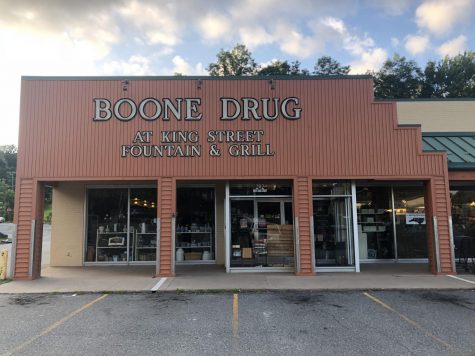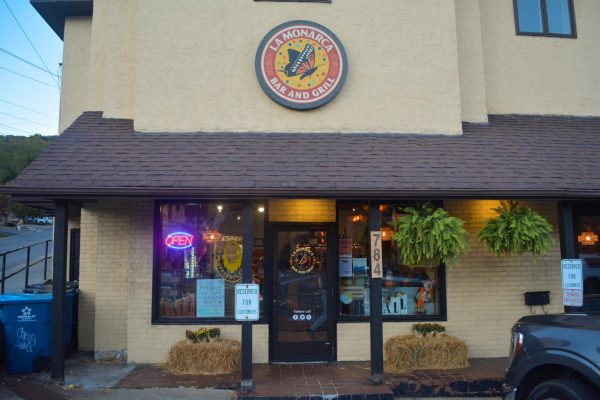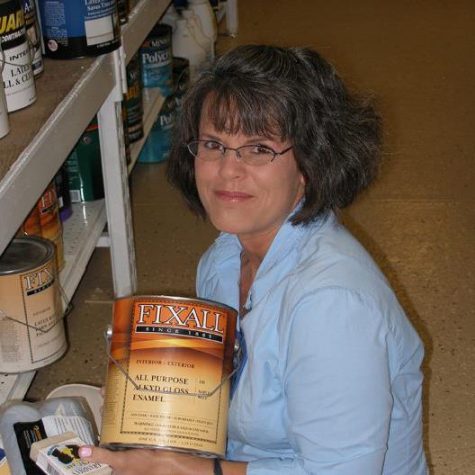Watauga County received 10 million opioid pills during 6 year period
July 19, 2019
This story is developing and will be updated.
More than 10 million opioid pills flooded Watauga County between 2006 and 2012, according to Drug Enforcement Administration data obtained by the Washington Post.
The Post’s analysis estimated that an average of 31.5 pills per person entered Watauga County each year. This estimate is based on a measurement of the population that includes children.
In 2010, Watauga County’s population was 51,079 people, according to the U.S. Census Bureau. The total number of pills distributed over the six year period was 10,799,273.
Boone Drug and Health Care at Deerfield and Boone Drug at New Market were the No. 1 and No. 3 distributors in Watauga County, distributing 3,203,600 pills and 1,283,500 pills, respectively. Walgreens on Blowing Rock Road was the No. 2 regional distributor at just over 2 million pills. McKesson Corp. and Walgreens were the top two distributors nationwide.

Two locations of Boone Drug were top distributors of opioids in Watauga County between 2006 and 2012.
Surrounding counties saw even higher rates of pills per capita.
- Avery County: 57.5 pills per person
- Caldwell County: 62.3 pills per person
- Wilkes County: 55.5 pills per person
- Ashe County: 42.9 pills per person
Boone Drug has not returned The Appalachian’s request for comment.
Although Purdue Pharma has largely served as the head of the opioid epidemic in media coverage, data indicates that most of the drugs distributed in the U.S. were manufactured by generic labels. Actavis Pharma was the No. 1 manufacturer of pills entering Watauga County with over 5 million pills. Purdue Pharma clocked in at No. 4 for the region at just over 300,000 pills.
Like other states in the Appalachian region, North Carolina has been a hotbed for opioid distribution. Over 2.5 billion pills were supplied to the state from 2006-2012, and Omnicare Pharmacy of Hickory received the highest number of pills statewide with more than 9 million. The most severely affected counties include Columbus County (113.5 pills per person), Surry County (80.6 pills per person) and Cherokee County (76.6 pills per person).
Drug overdoses in North Carolina steadily increased from a rate of 13.8 in 100,000 in 2013 to a rate of 24.1 in 100,000 in 2017, according to data from the U.S. Centers for Disease Control and Prevention. State 2018 rates are not yet available, although national rates fell in 2018 for the first time in decades, the Post reported.
During the six year period, Walgreens distributed 13 billion oxycodone or hydrocodone pills, or 16.5% of the market. AmerisourceBergen, the distributor for Boone Drug, contributed to 11.7% of the market, or 9 billion pills.
Neither Walgreens nor AmerisourceBergen have returned The Appalachian’s request for comment.
Data From Around the State
More than 144 million pills were distributed to Wake County, where most of App State’s class of 2023 is from, according to data from App State’s Institutional Research, Assessment and Planning office. Each year, an average of 24 pills per person were supplied to the area.
For Mecklenburg, the second highest county for class of 2023 students, more than 137 million pills were distributed.
Finally, for Guilford, the third highest county for class of 2023 students, more than 112 million pills, or 33 pills per person per year, were distributed.
The top manufacturer of pills in North Carolina during those six years was SpecGx LLC, who manufactured over 1.2 billion pills, nearly half of all pills distributed. The top distributor was Cardinal Health, which distributed over 540 million pills during that period.
The data for this story was made public as the result of a lawsuit against the DEA by The Washington Post and HD Media, which owns the Charleston Gazette-Mail and the Herald Dispatch in West Virginia. The federal judge overseeing the case has not yet decided if data from 2013 and 2014 should be publicly released.
Moss Brennan contributed to this report.















Boone Drug - Corey Furman • Aug 3, 2019 at 1:38 pm
Boone Drug applauds The Appalachian for helping to shine a light on the growing opioid epidemic in our country. Like most of the community, the Boone Drug family of employees has, in one way or another, dealt with the pain of this epidemic. Whether through a family member, a neighbor, or friends, we too recognize the seriousness of the problem and we are committed to doing our part to assist. Boone Drug supports local drop boxes, through a partnership with Project Lazarus, for the return of unused medication in multiple locations, with more to be added this year. We support local takeback projects with local law enforcement at our health-fares. Boone Drug was one of the first pharmacies in the area to offer Narcan through the state’s standing order program to prevent deadly overdose situations. We donate part of our yearly advertising budget to promote public service announcements designed to educate the public about the dangers of opioid misuse. We attend prescriber forums where doctors can discuss the issue and we can also provide valuable insight to assist. Boone Drug also has policies to prevent early filling of controlled substances, as well as policies to prevent someone from “doctor & pharmacy shopping.”
Boone Drug is proud of The Appalachian for further assisting by educating the community on the dangerous potential impact opioids can have on a town, county, state, and country.
Boone Drug is also proud of our community. We have been loving and caring for our community for over 100 years. Boone Drug was founded in 1919 and we have always strived to reflect a continuous goal throughout the decades; to serve others. During the past 100 years, we have been humbled and joyed to develop the trust of our community, friends, caregivers, nurses, and doctors. In so doing, we have become the most popular pharmacy-family of stores in the area. This is not a title we hold flippantly. Nor do we allow this popularity to shift our focus away from the most important goal we strive to maintain in all aspects of our duty to others. That goal can be found in the book of Philippians, “with humility of mind regard one another as more important than yourself.”
We believe this philosophy has allowed us to develop a strong relationship within our community and with our prescribers. We also have strong relationships with multiple point of care organizations designed to care for individuals during their most painful aspects of life. These relationships allow Boone Drug the privilege of filling the majority of prescriptions in the area; of which opioids are a small percentage. Along with the FDA, the DEA, and our local doctors, we recognize the proper place opioids have in appropriate medical practice. We always have and always will strive to maintain a standard to keep opioids within their appropriate scope of use.
Boone Drug stands with The Appalachian to shine a light on this epidemic and we will continue to use our time, energy, and resources to care for our community and keep The High Country safe.
If The Appalachian feels it would be beneficial, Boone Drug would be proud to co-sponsor more on-campus education programs to assist in educating faculty and students further on this issue.
Please reach out to us if you are interested in further educating our community.
Thomas McLaughlin • Aug 1, 2019 at 2:49 pm
Nice piece of journalism. You know you’re onto something when nobody involved will answer your questions. Hope you can stay on the story.